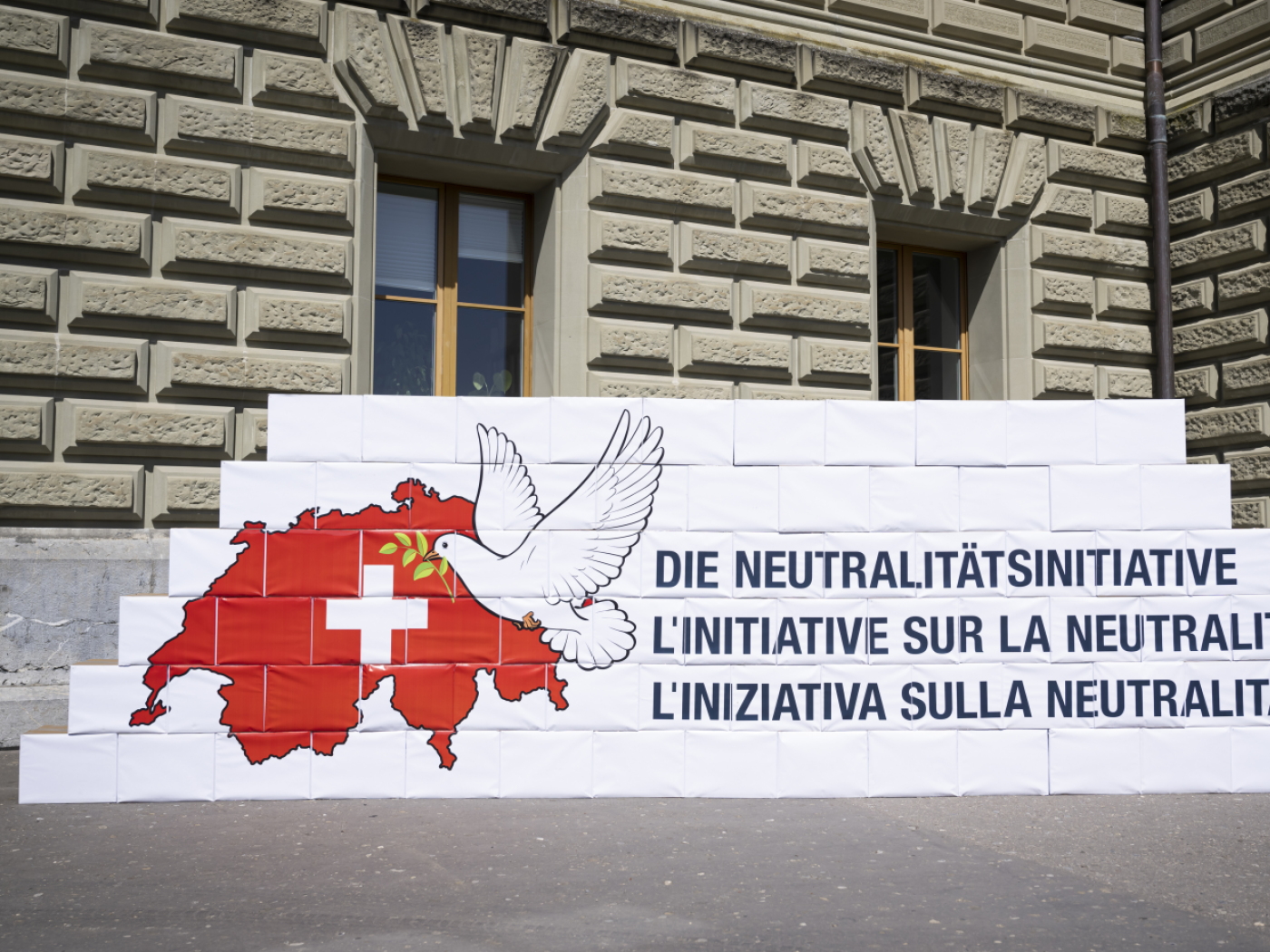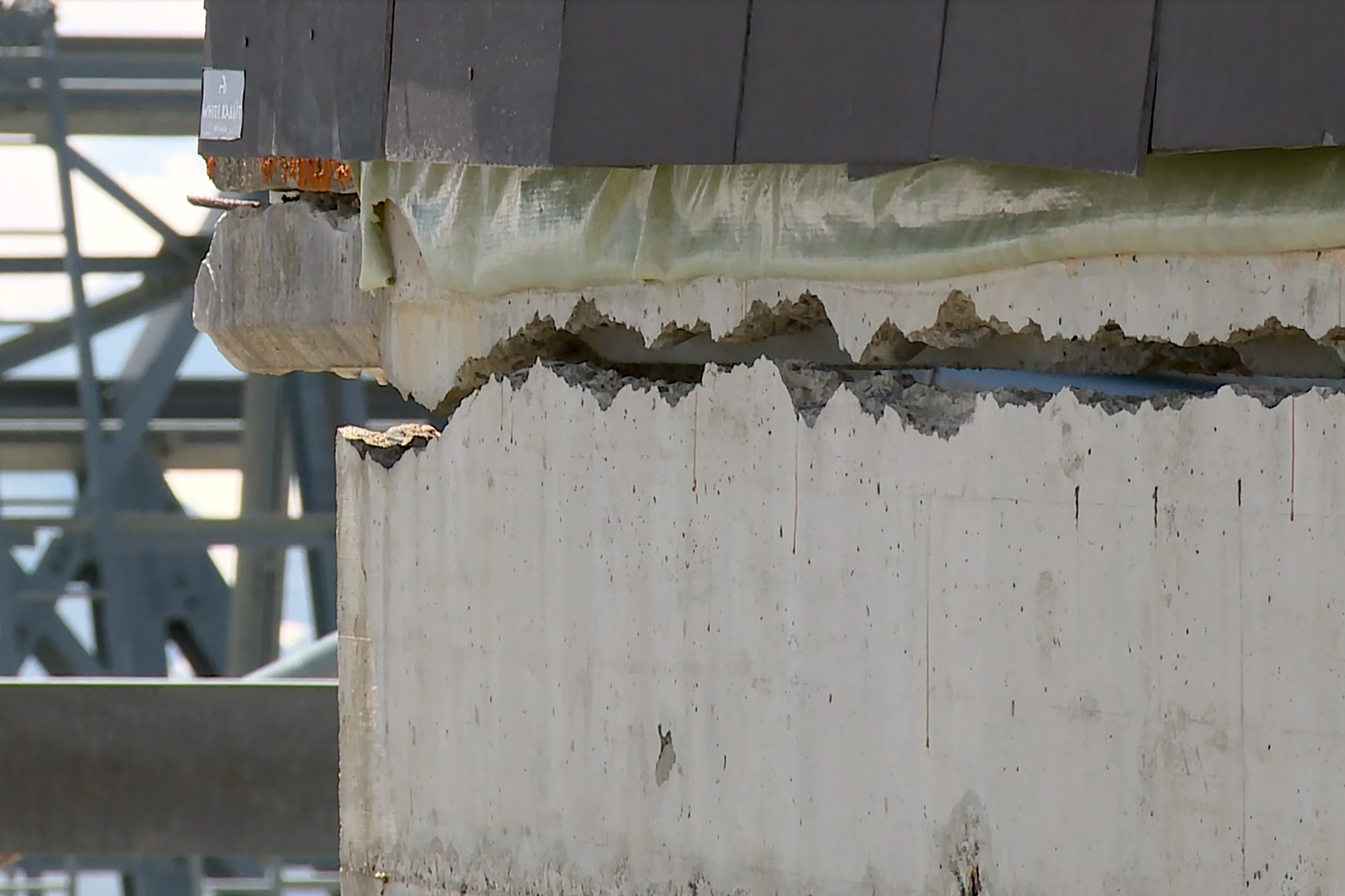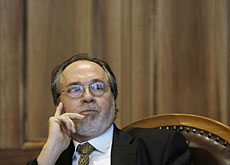
Reporters cleared of revealing military secret

A military court has acquitted three Swiss journalists of publishing a leaked document that was intercepted by the Swiss intelligence service.
The case, commonly known as the “CIA fax affair”, had been widely followed both in and outside Switzerland because of its implications for press freedom and the role of military justice.
Switzerland is the only European country in which civilians must appear in front of a military tribunal if they are summoned to do so.
The tribunal in St Gallen on Tuesday cleared two reporters and a former editor-in-chief of the SonntagsBlick weekly of breaking Swiss military secrecy laws and granted them SFr20,000 ($16,554) each in compensation.
The defendants were accused of publishing remarks of the Swiss intelligence service that appeared on the fax. They claimed they had found the fax underneath a seat in a train.
The prosecution which had called for fines of up to SFr45,600 suspended over two years, said it was considering an appeal against the verdict. It said the journalists had compromised neutral Switzerland’s intelligence gathering operations and displayed a reckless attitude to national security.
The defence lawyer had asked the tribunal to acquit the men of all charges, adding that the contents of the fax had already been public knowledge. The defendants said they did not recognise the court’s authority.
Detention centres
Trade unions which criticised the controversial trial have welcomed Tuesday’s verdict.
The case dates back to January 2006 when the newspaper published details of a fax that had been on its way from the Egyptian foreign ministry to Cairo’s embassy in London.
The fax supposedly confirmed the existence of secret prisons in Europe run by the United States, where suspected members of Osama bin Laden’s al Qaeda network were being interrogated.
According to the SonntagsBlick, the fax had been intercepted on November 10, just three days after the Council of Europe launched an investigation into allegations that the CIA was running secret interrogation centres in Europe.
Protests
Before the trial a non-party committee that included politicians, unions, media experts, journalists and others had demanded “free media instead of military courts”.
In an article in the respected Neue Zürcher Zeitung, the president of the Swiss Press Council, Peter Studer, wrote that military courts were no longer in keeping with the times.
He said it was particularly striking that civilian journalists who were not serving in the army could be “hauled” before military courts with threatened penalties that were “exceedingly high”.
For his part, Stefan Flachsmann, a legal expert at Zurich University, said the expertise of military courts could help reduce the risk of miscarriages of justice and provide a high degree of independence.
The European Federation of Journalists condemned the Swiss military for using legal proceedings to intimidate journalists who uncovered proof of secret transfers and prisons used by US agents in Europe.
“It is ironic that in the host country of the Geneva Conventions, journalists are being charged by a military court for reporting on human rights abuses,” said Arne König, the federation’s chairman.
Reporters without Borders, an organisation that defends imprisoned journalists and press freedom around the world, questioned the legitimacy of the decision to try the journalists before a military court after the idea of a civil prosecution was abandoned.
swissinfo with agencies
There are a number of recent cases in which journalists have had to appear before a military court in Switzerland:
In 2003, a reporter for the Weltwoche weekly mentioned the approximate location of a secret bunker of the Bern cantonal government. He was acquitted but had to pay a disciplinary fine of SFr400.
In 2005, a fine of SFr700 was imposed on a Basler Zeitung reporter who disclosed the apparent whereabouts of a bunker of the Basel Country cantonal government.
A SonntagsBlick journalist was given a suspended 20-day prison sentence for disclosing construction faults of an air force installation in central Switzerland.
Proposals to abolish military courts, including a 1921 people’s initiative, have failed.
The Swiss cabinet strongly criticised the publication of details of the CIA fax in January last year, saying it had damaged the credibility of the country.
A parliamentary sub-committee later cleared the cabinet of having knowledge about alleged overflights in Swiss airspace of CIA planes carrying prisoners.
In April, Swiss authorities confirmed claims in a report by Amnesty International that six suspected CIA flights had landed in Switzerland.
In June, Swiss investigator Dick Marty said more than a dozen European countries colluded in a “global spider’s web” of secret CIA prisons and transfers of terrorism suspects.
Marty, looking into the affair for the human rights watchdog, the Council of Europe, said seven nations played an active role and others, including Switzerland, turned a blind eye.

In compliance with the JTI standards
More: SWI swissinfo.ch certified by the Journalism Trust Initiative






































You can find an overview of ongoing debates with our journalists here . Please join us!
If you want to start a conversation about a topic raised in this article or want to report factual errors, email us at english@swissinfo.ch.